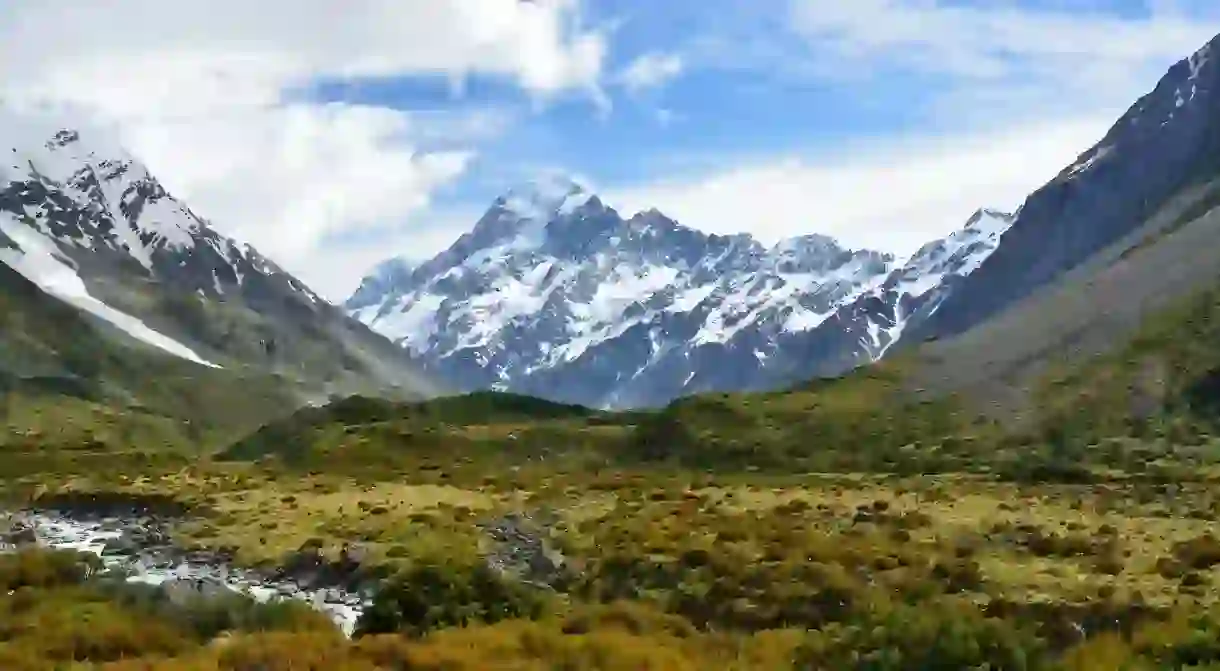Why Are New Zealand's Mountains Sacred?

In New Zealand, mountains, or maunga, are held in the utmost regard and are considered the highest order of sacred. The spiritual connection of Māori to maunga dates back hundreds of years, and their holistic attachment to the land is why they are so fervently respected.
New Zealand, or Aotearoa as it is referred to in the Māori language, is famed for its high-reaching and picturesque mountain ranges. Ever since Tolkien’s fellowship traversed its lofty highways in Peter Jackson’s Lord of the Rings franchise, New Zealand’s many mountainous peaks have won the adoration of spectators worldwide. Yet despite this new batch of admirers, the mountains of New Zealand have long held the reverence of local Māori without the guise of the silver screen.
To understand the Māori philosophy on the sacred nature of mountains, it is paramount to understand the ideologies which bind them to their lore. The story goes that Aoraki, or Mt Cook, is the sacred mountain of the Ngai Tahu tribe. When Raki (the Sky) and Papatuanuku (the Earth), came together to create the world, the Gods existed in the midst of a great sea of nothingness. Aoraki (Cloud in the Sky), the eldest son of Raki, and his brothers brought the great waka, Te Waka o Aoraki, down from the heavens to visit their stepmother Papatuanuku after their father had left their mother, Pokoharua-te-po.


When they saw Raki and Papatuanuku together and realized that they would not be able to persuade their father to return, the brothers decided to go back to the heavens to comfort their mother. Aoraki went to make his karakia (prayer chant) before making the voyage back into the heavens but unfortunately he made a mistake. The waka failed to rise, becoming stranded as the wind blew and the seas rose, overturning the waka and tipping the brothers into the water.
The brothers, climbing onto the upturned canoe, waited for someone to rescue them. Time passed, their hair turned white, and they turned to stone, becoming Te Tiritiri O Moana (the Southern Alps), with Aoraki being the highest peak.
Herein lies the lore which binds Maori to respect their great mountains. Like Aoraki/Mt Cook, New Zealand’s mountains are named after ancient ancestors. As such, the great maunga are afforded the same reverance and respect as living elders and tribal leaders. It’s also why Māori will not stand on the peak of a mountain: in Māori culture, to stand on the peak of a mountain is to stand on the head of an ancestor. Thus, Māori tikanga (lore) dictates that the head is the most sacred of all Māori body parts as it is the pathway to knowledge which carries tribes into the future.













